Archaeology
-
 Anthropology
AnthropologyHow mythology could help demystify dog domestication
The path that dog myths took around the world closely parallels that of dog domestication, a new study finds.
-
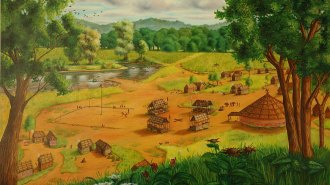 Archaeology
ArchaeologyIndigenous Americans ruled democratically long before the U.S. did
Oklahoma’s Muscogee people, among others, promoted rule by the people long before the U.S. Constitution was written.
By Bruce Bower -
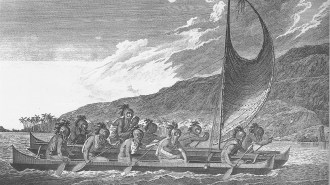 Anthropology
Anthropology‘The Five-Million-Year Odyssey’ reveals how migration shaped humankind
A globe-trotting trek through history shows how past population migrations changed the course of human biology and culture.
By Bruce Bower -
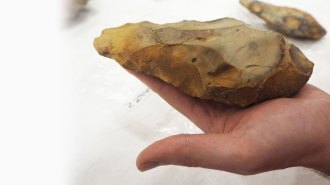 Archaeology
ArchaeologyBritons’ tools from 560,000 years ago have emerged from gravel pits
A new study confirms that an archaeological site in southeastern England called Fordwich is one of the oldest hominid sites in the country.
By Bruce Bower -
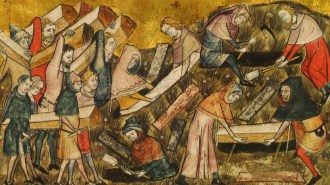 Archaeology
ArchaeologyAncient bacterial DNA hints Europe’s Black Death started in Central Asia
Archaeological and genetic data pin the origins of Europe’s 1346–1353 bubonic plague to a bacterial strain found in graves in Asia from the 1330s.
By Bruce Bower -
 Anthropology
AnthropologyA new origin story for domesticated chickens starts in rice fields 3,500 years ago
Chickens, popular on today’s menus, got their start in Southeast Asia surprisingly recently, probably as exotic or revered animals, researchers say.
By Bruce Bower -
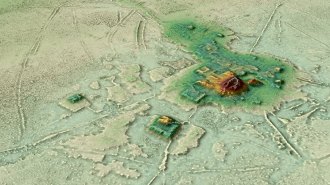 Archaeology
ArchaeologyLasers reveal ancient urban sprawl hidden in the Amazon
South America’s Casarabe culture built a network of large and small settlements in what’s now Bolivia centuries before the Spanish arrived.
By Bruce Bower -
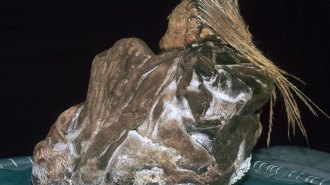 Archaeology
ArchaeologyA special brew may have calmed Inca children headed for sacrifice
The mummified remains contained a substance that may reduce anxiety and is found in ayahuasca, a psychedelic ceremonial liquid still drunk today.
By Bruce Bower -
 Humans
HumansPrehistoric people may have used light from fires to create dynamic art
When brought near flickering flames, prehistoric stone engravings of animals seem to move, experiments with replicas and virtual reality show.
-
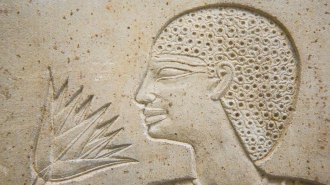 Archaeology
ArchaeologyAncient ‘smellscapes’ are wafting out of artifacts and old texts
In studying and reviving long-ago scents, archaeologists aim to understand how people experienced, and interpreted, their worlds through smell.
By Bruce Bower -
 Particle Physics
Particle PhysicsMuons spill secrets about Earth’s hidden structures
Tracking travel patterns of subatomic particles called muons helps reveal the inner worlds of pyramids, volcanoes and more.
-
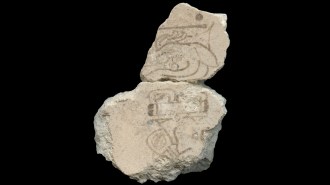 Archaeology
ArchaeologyThis hieroglyph is the oldest known record of the Maya calendar
Plaster fragments with the markings date to at least 200 B.C. and indicate that the calendar system, still used today, might be centuries older.
By Anna Gibbs